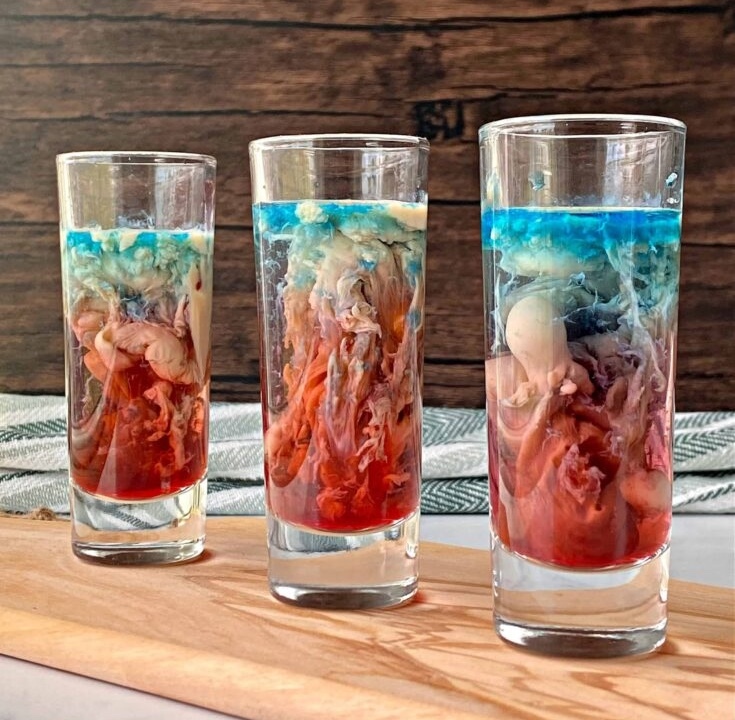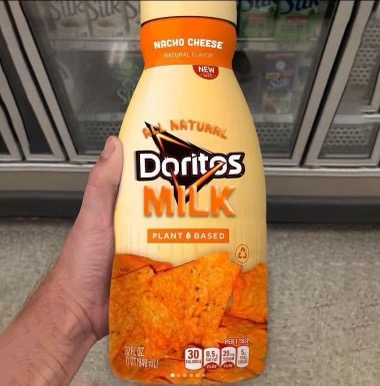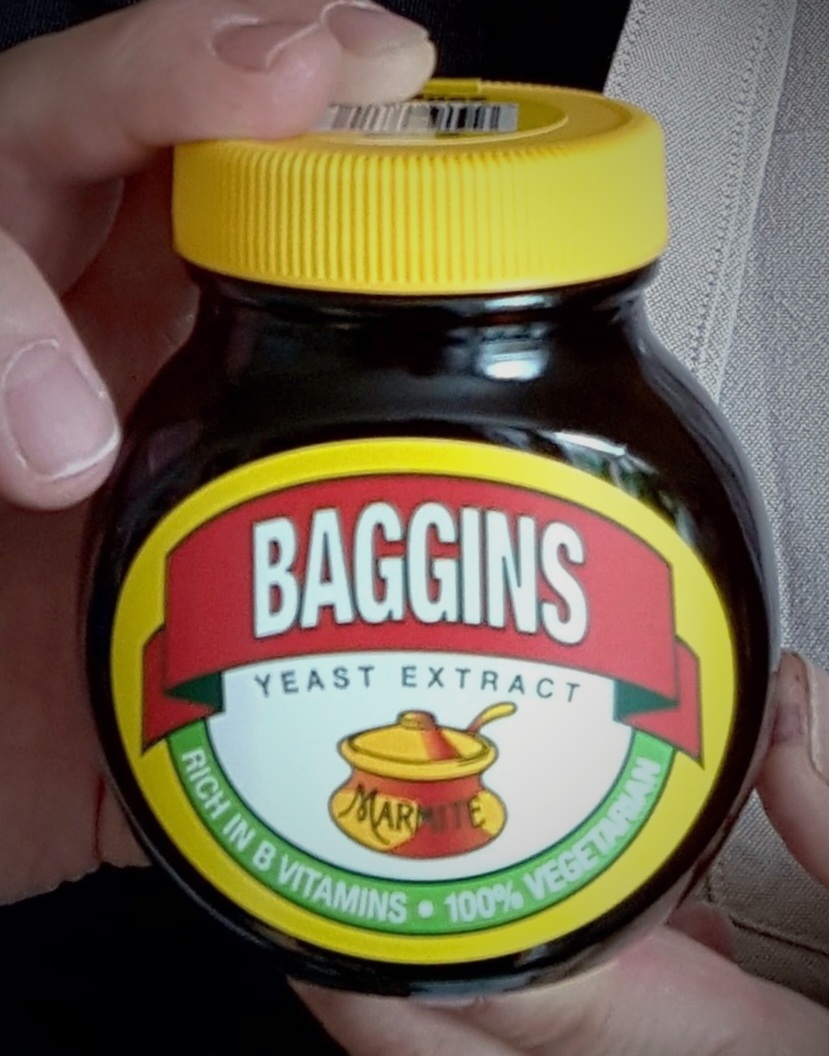Looks like testicles pulled out and boiled
Which is exactly what they’d have served you on Fear Factor.
deleted by creator
Delicacy in the Rockies more like.
This looks like the time I jerked off in the hot tub.
I’m never allowed at that house again.
Some hot tub hosts have no humour.
Swimmers became streamers…
Did you release one of your patented maggoty cum farts in the hot tub as well?
Manslaughter is an accident and a crime.
unless the prosecution hides the bullets for no reason
Hey…i got that reference
Foodslaughter then
Magnificent for halloween!
Goes well with this (well, at least visually):

Vinegar…?
the method requires to poach eggs on water with few drops of vinegar, not 100% vinegar
Helps hold the whites intact I believe? Maybe I was lied to about putting some vinegar in with boiled eggs to stop seepage if they crack?
My research into this previously had indicated this is an old wives tale. Don’t take my word for it though, since I can’t poach an egg to save my life.
Makes sense. Both acid and heat denature protein.
Yeah, but typical white vinegar is 5% acetic acid. Putting a few drops, or even a teaspoon in a pot of water would reduce it to a negligible concentration and would have no effect on the eggs.
That’s also not really considering any chemical reaction with the calcium in the shell just neutralizing the vinegar anyway.
Wtf does vinegar have to do with poached eggs in the first place? Are they boiling a pot of vinegar for some reason?
The vinegar helps the denaturation of the ovalbumin in the egg white which speeds up the solidification process and helps the egg hold its shape better.
I’ve never heard the word ovalbumin before, but I like it. Albumin largely means protein, but it’s using Latin words ovi (egg) and albus (white) so you’re saying “the denaturation of the egg white in the egg white.”
Ah, maybe! I’m a better cook than I am a student of Latin!
You put a small amount in the water to help keep them white apparently. But this only works if you use white (or clear) vinegar :-) ‘Many professional chefs suggest adding approximately 1-2 tablespoons of vinegar to a pot of simmering water when poaching eggs. This amount provides enough acid to help coagulate the egg white while still allowing the natural flavours of the egg to shine through.’
To add to the other reply: it’s just a splash of vinegar in a pot of boiling water.
https://www.allrecipes.com/article/hacks-to-master-poaching-eggs/
Legit though, a few drops of aged balsamic on eggs is amazing.
The “fake” balsamic, meaning regular vinegar that’s flavored and colored to be kinda similar to aged balsamic, but lacks the best parts, is barely acceptable for salad dressing and roasting Brussels sprouts. And that’s what was used here. Either that or they have way too much money to be wasting stuff that’s as much as a hundred bucks for a small bottle that’s meant to be used a few drops at a time.
Where the fuck are you spending 100 bucks on balsamic? It’s €1 a bottle
Not aged, DOP balsamic. And I specified the aged balsamic in my comment.
That stuff is aged in barrels until it’s a thick, syrupy bit of heaven. A minimum of 25 years to meet the DOP standards.
The IGP standard for balsamic is less stringent, and it is cheaper, but you still aren’t paying 1 euro for it anywhere that I could find online. It’s more like 5 or 6 euro. It’s essentially the same as the cheaper stuff; grape must added to other vinegar, but processed in Modena.
Here in the US a decent IGP balsamic is closer to 25 USD.
The cheapest aged balsamic I can get here is 35 a bottle, and it isn’t DOP, it’s made here in the states, and isn’t aged as long; it goes 12 years. The DOP stuff can actually end up over 100 here by the time all the costs of it getting here get involved. And they’re small bottles compared to the U.S. made aged stuff.
This is a decent IGP balsamic on us amazon
And here’s a DOP that’s supposedly amazing, but way outside my budget, so I’ll never know
And this is just “balsamic” with no standard applied at all
I don’t know if the listings there includes an ingredient list at all, but the pompeian is just cheap wine vinegar with some grape must and coloring added. It just isn’t made in Italy at all, much less Modena.
And there is a major difference in taste, texture, and thickness between IGP and DOP, even on the cheapest DOP available here in the US (about 35 bucks, so not different in price grin the us made stuff). There’s only minor taste difference between IGP and the typical stuff on grocery store shelves here. And I suspect that is down to the vinegar used as the base.
Aged DOP, or the equivalent regardless of where it’s made, you treat it like the luxury it is. You put drops of it on things because that’s all you need. You don’t cook it at all because it destroys the flavor.
The process of aging the stuff is slow. You start the batch off in a big barrel. After a time,a few years, the wood has sucked out water and imparted its own flavors. They’ll then move it to a smaller barrel where it sits and gets further reduced and aged. By the time it’s done, the original amount is down to a gallon or so, depending on exactly how the maker does things. That is then bottled.
So, it’s a labor intensive, time consuming process. Even the least expensive stuff that’s only aged 12 years or so that isn’t DOP still represents a buttload of resources. You aren’t going to find that for 1 euro. Even if it cost so little to make they could sell it for that, they wouldn’t.
I never knew anything about this ever but my interest in incredibly piqued now thank you.
No worries :)
You really gotta try some of the more affordable DOP stuff, it is an experience
Lol. Nope.
If I saw this godless sight, I’d never think to try and eat it anyways
I’ve never had a poached egg, and I didn’t know that making them required vinegar. Seeing this makes me never want to try them even if done correctly.
Now do apple cider vinegar.













